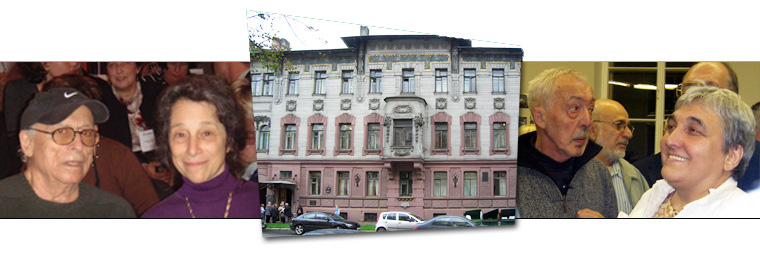Luckily for me, I began studying Russian literature at a time when interesting writers in the USSR were eager for exposure in the West, and so I was able to meet, interview, translate, publish and import to the US, among other Russian writers, Yuz Aleshkovsky and Andrei Bitov (Life in Windy Weather: the Stories of Andrei Bitov). Many of these writers gathered four decades later at Bitov’s four-day-long seventieth birthday party, which took place in 2007 in the Nabokov museum in Petersburg (the source of the photos in the banner above).
Reading Nabokov (as well as the Russian Formalist critics of the 1920s) taught me the art of close reading, how to interpret literary texts by moving from significant detail to the principles that pattern it (Find What the Sailor has Hidden: Vladimir Nabokov’s Pale Fire); my students use this method to make their own original discoveries. Over many years of teaching a seminar on Nabokov, I have had the pleasure of publishing some of their findings in The Nabokovian, a newsletter for which I edit a section called NOTES AND BRIEF COMMENTARIES.
My Francophilia provided unexpected insight into the great Russian novels; sabbaticals in the British library and a course pairing French and Russian novels gradually revealed the conscious relationships Russian writers constructed to dozens of French subtexts (How the Russians Read the French: Lermontov, Dostoevsky, Tolstoy).
The Russian department has brought Russia’s leading critics, poets and prose writers to Wesleyan, and organized important scholarly conferences, publishing the papers presented (e.g. Essays on Gogol, Nabokov’s World, Yuz!). It has been and continues to be an exciting period to be part of an international network of scholars, creative artists and friends involved in Russian cultural life.

